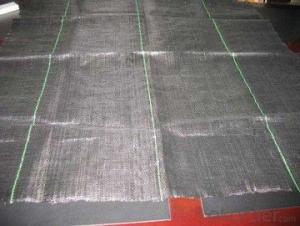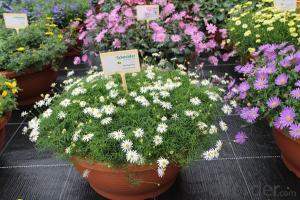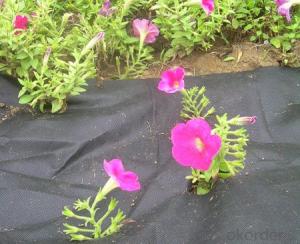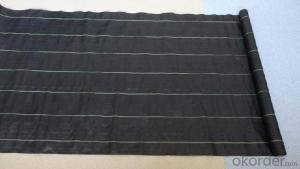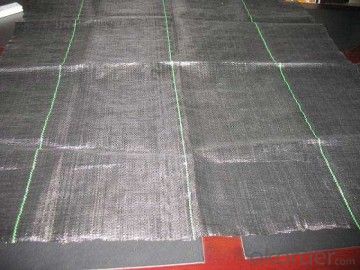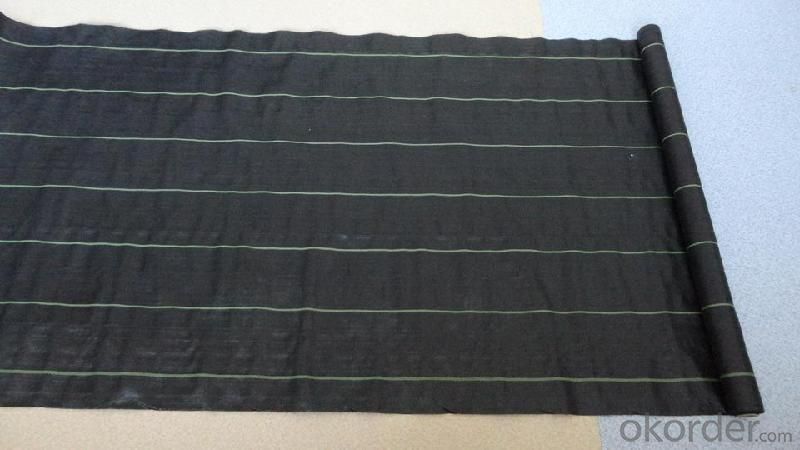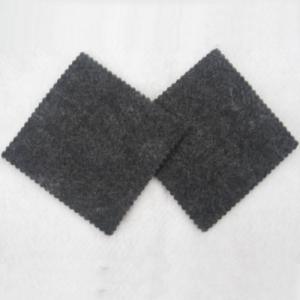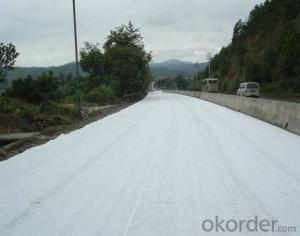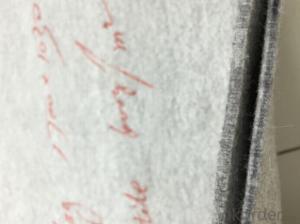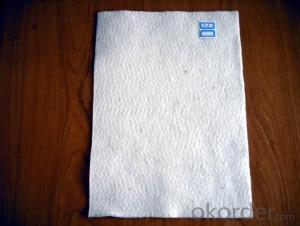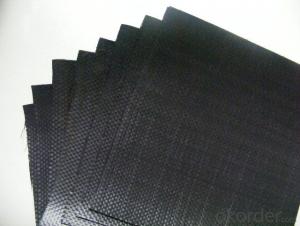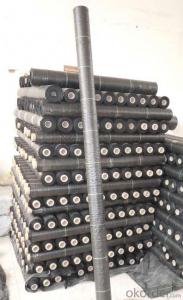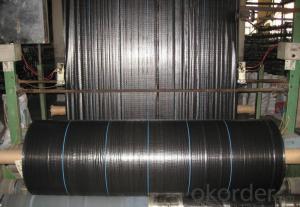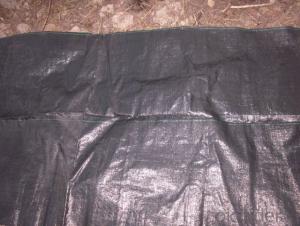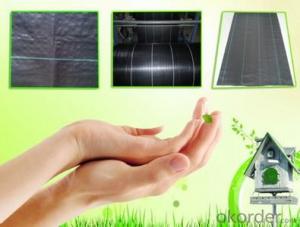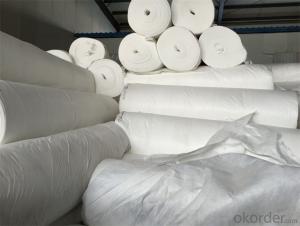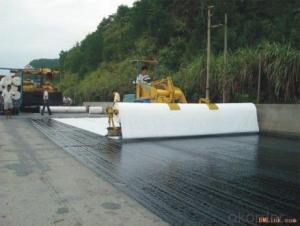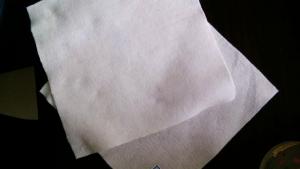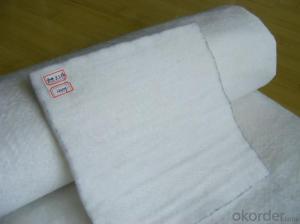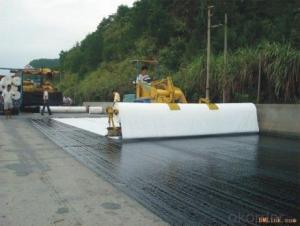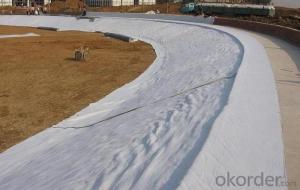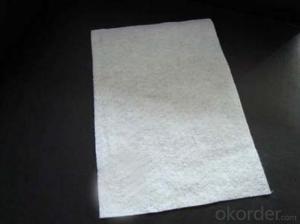Non Woven Geotextile Specification for Agricultural UV Nonwoven Fabric as Weed Control Mat, Anti Grass Cloth, Plant Cover
- Loading Port:
- Qingdao
- Payment Terms:
- TT OR LC
- Min Order Qty:
- 500 m²
- Supply Capability:
- 500000 m²/month
OKorder Service Pledge
OKorder Financial Service
You Might Also Like
Product Description
The weed control mat is made of environmentally friendly raw materials, pp woven fabric. It used to prevent the growth of weed, without the use of potentially dangerous chemical sprays or labor intensive hoeing. Once installed, weed mat will continue providing protection for years without maintenance.
They are permeable fabrics, which allow air, water and nutrients to pass through, and designed to block out the sun to reduce photosynthesis and stop weed growth.
Specification
ROPERTY | ASTM TEST METHOD | Minimum Average | Minimum Average |
Mass per unit Area | ASTM D-5261 | 3.0 oz/yd2 | 100 g/m2 |
Grab Tensile | ASTM D-4632 | 145 lbs | 660 N |
Grab Elongation | ASTM D-4632 | 15% | 15% |
Trapezoid Tear | ASTM D-4533 | 55 lbs | 245 N |
Water Flow Rate | ASTM D-4491 | 5 gal/min/ft2 | 203 L/min/m2 |
UV Resistance | ASTM D-4355 | 70% @ 500 hrs | 70% @ 500 hrs |
ROLL DIMENSIONS | |||
Roll Width | 0.9m (3’) | 1.8m (6') | 2.7m (9') |
Roll Length | 91.4m (300’) | ||
Roll Weight | 8kgs (17lbs) | 16kgs (34lbs) | 24kgs (52bs) |
Features
1. Weed suppressant and drainage control landscaping fabric
2. Easy to use, Environmentally friendly
3. Allows water, air and nutrients through, suppressing weeds without the use of chemicals
4. Reduces the level of watering required due to the slower rate of water evaporation
Application
1. Excellent Weed Control
2. Moisture, fertilizers, air reach plants to allow for healthy soil
3. Good water and air permeability
4. Exceptional toughness and strength
5. Durable, tear-resistant; won't rot or mildew
6. Lightweight, easy to install, follows natural ground contours
7. Ideal for use in landscaped beds, under decks and walkways.
Packaging & Delivery
| Packaging Details: | Packed In Roll Or In Bales Or Cartons Or According To Customers Requirement |
| Delivery Detail: | 20 Days After Order Confirmed |
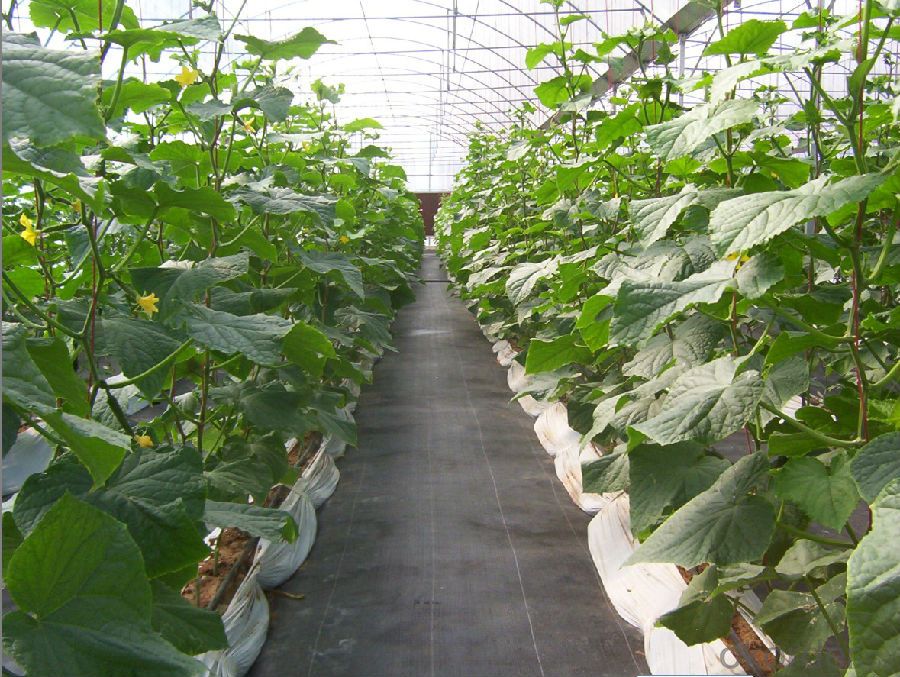
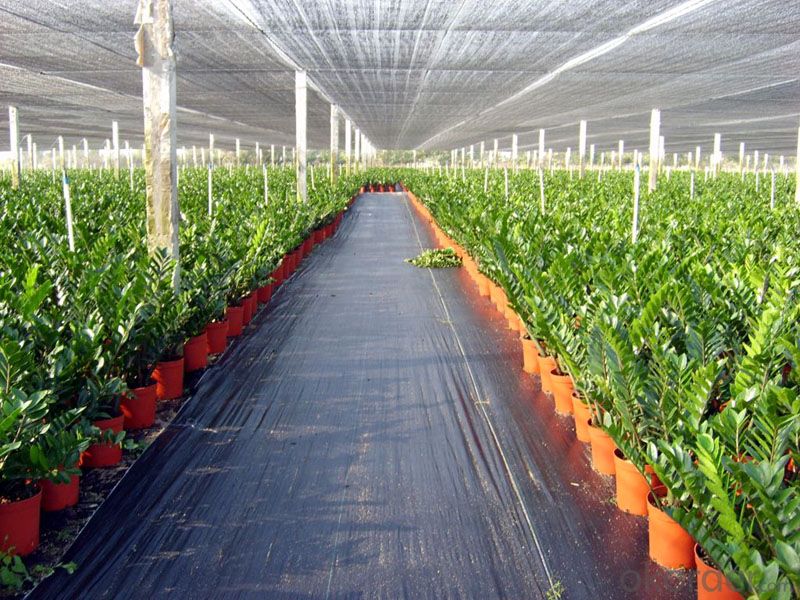
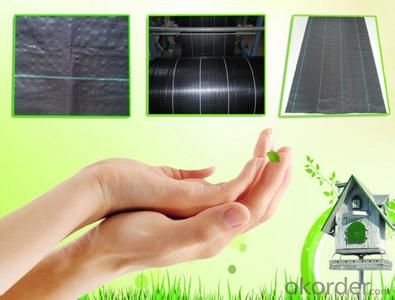
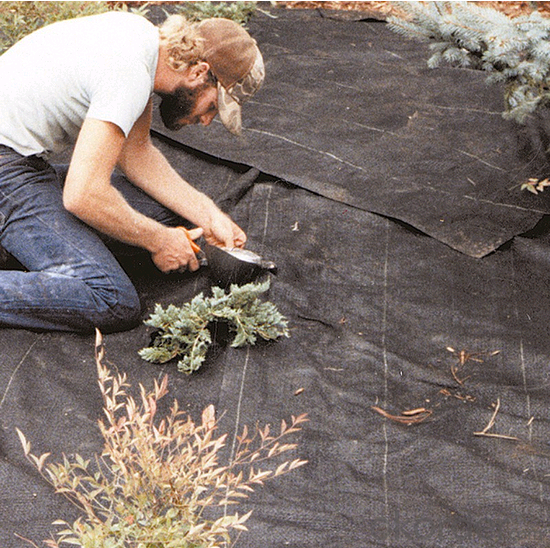
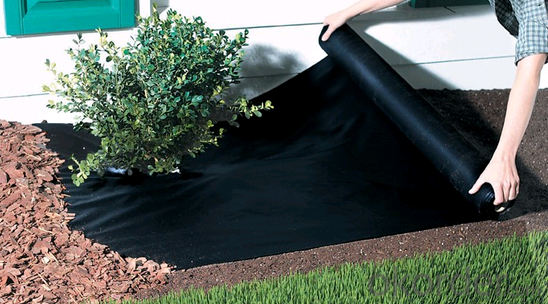
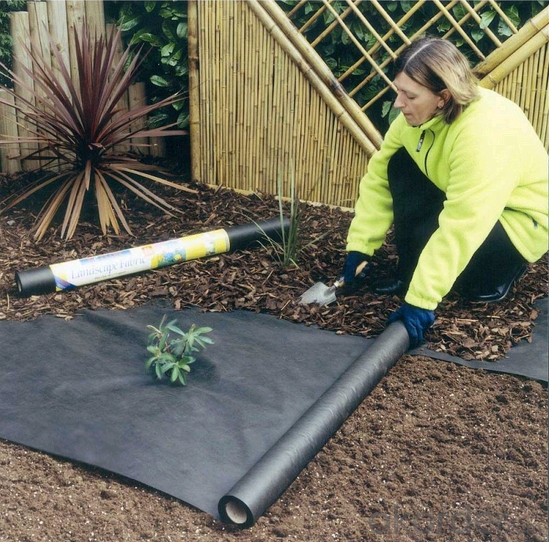
FAQ
1, Samples Policy
Samples are free, but the freight is on customers' charge
Samples will usually be sent out in one day.
2, Prices
As for the prices, we need you to provide us weight, color, width and usage so that
we can quote you best.
3, How to place an order?
Inquiry
Reply
Sample
Contract
Receiving deposit& production
Testing& Packing
Delivery
Receiving
- Q: Can geotextiles be used in foundation drainage systems?
- Yes, geotextiles can be used in foundation drainage systems. Geotextiles are commonly used as a filter fabric to prevent soil particles from clogging drainage pipes and to promote water flow within the system. They can effectively enhance the performance and longevity of foundation drainage systems by improving water drainage and preventing soil erosion.
- Q: Application standard of filament geotextile
- National standard for filament geotextiles GB / T-1998 Geosynthetics Filament anti - sticking acupuncture non - woven geotextiles, the latest standard GB / T - 2008.
- Q: What are the different geotextile manufacturing processes?
- There are several different geotextile manufacturing processes, including needle punching, thermal bonding, and weaving.
- Q: Can geotextiles be used for reinforcement in retaining walls?
- Yes, geotextiles can be used for reinforcement in retaining walls. They are commonly used to provide stability and prevent soil erosion behind the retaining wall. The geotextiles act as a barrier, separating the soil layers and allowing water drainage while providing additional strength and stability to the structure.
- Q: Can geotextiles be used in geosynthetic encased columns?
- Yes, geotextiles can be used in geosynthetic encased columns. Geotextiles are commonly used in geosynthetic encased columns as a reinforcement material to enhance the load-bearing capacity and stability of the structure. They provide reinforcement and prevent soil erosion or migration, making them suitable for use in geosynthetic encased columns.
- Q: Whether the geotextile filter layer includes a plastic mesh
- Hello, geotextile can be used as a separate filter and grid sand with as a filter layer, Huazhi geotextile material manufacturers for you to answer
- Q: I only know how many grams per gram of geotextile, but do not know what the meaning of this TS30? More
- Should be a product line, 30 should also be the quality of square meters you can consult the Baili Fu dealer
- Q: How do geotextiles help in reducing the settlement of structures on soft soils?
- Geotextiles help in reducing the settlement of structures on soft soils by providing a stable and reinforced foundation. They act as a barrier between the soil layers, distributing the load evenly and preventing excessive settlement. Additionally, geotextiles improve the soil's drainage and filtration capabilities, allowing water to permeate and preventing waterlogging, which can further contribute to settlement.
- Q: What are the design considerations for geotextile-reinforced retaining walls?
- Some design considerations for geotextile-reinforced retaining walls include the choice of appropriate geotextile material, the proper selection and placement of reinforcement layers, consideration of the soil characteristics and potential surcharge loads, evaluation of potential water drainage and filtration requirements, and ensuring compatibility with the overall aesthetic and environmental requirements of the site.
- Q: How do geotextiles help in reducing the impact of heavy rainfall on soil?
- Geotextiles help in reducing the impact of heavy rainfall on soil by acting as a barrier between the soil and the water. They provide reinforcement to the soil, preventing erosion and soil displacement caused by the force of the rainfall. Additionally, geotextiles allow water to infiltrate into the soil and drain efficiently, reducing the risk of waterlogging and improving the overall stability of the soil during heavy rainfall events.
Send your message to us
Non Woven Geotextile Specification for Agricultural UV Nonwoven Fabric as Weed Control Mat, Anti Grass Cloth, Plant Cover
- Loading Port:
- Qingdao
- Payment Terms:
- TT OR LC
- Min Order Qty:
- 500 m²
- Supply Capability:
- 500000 m²/month
OKorder Service Pledge
OKorder Financial Service
Similar products
Hot products
Hot Searches
Related keywords
